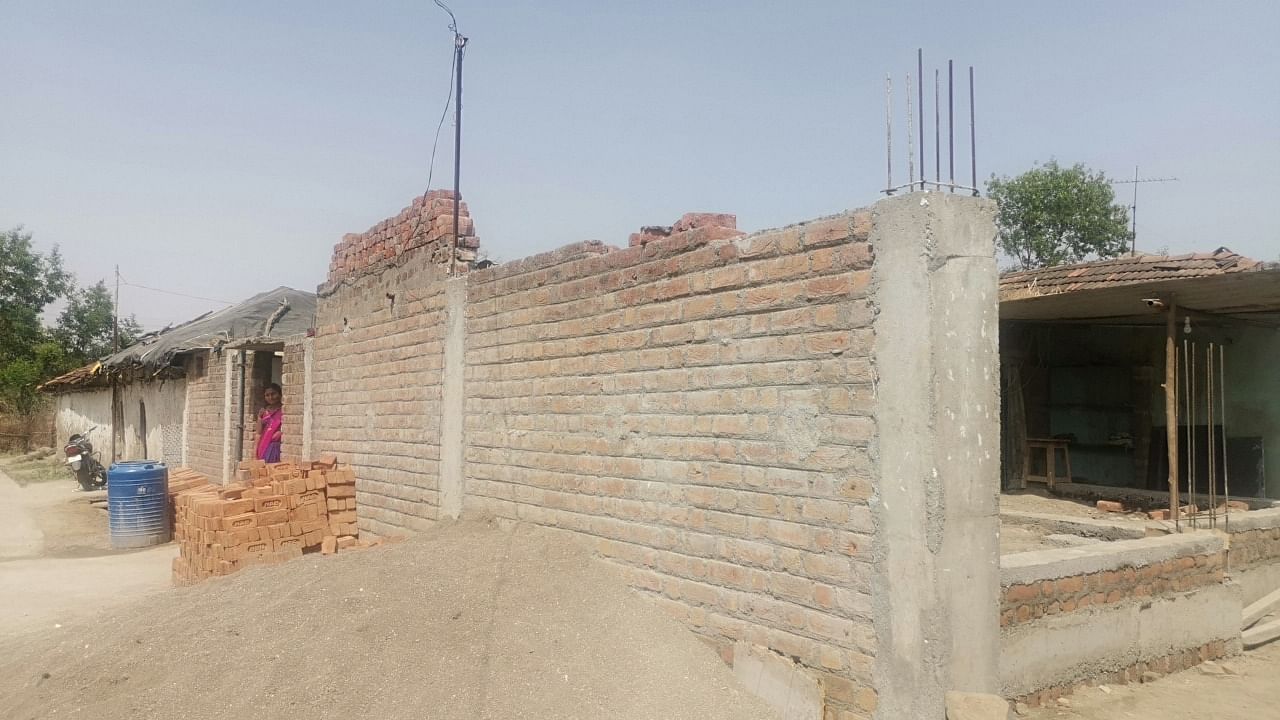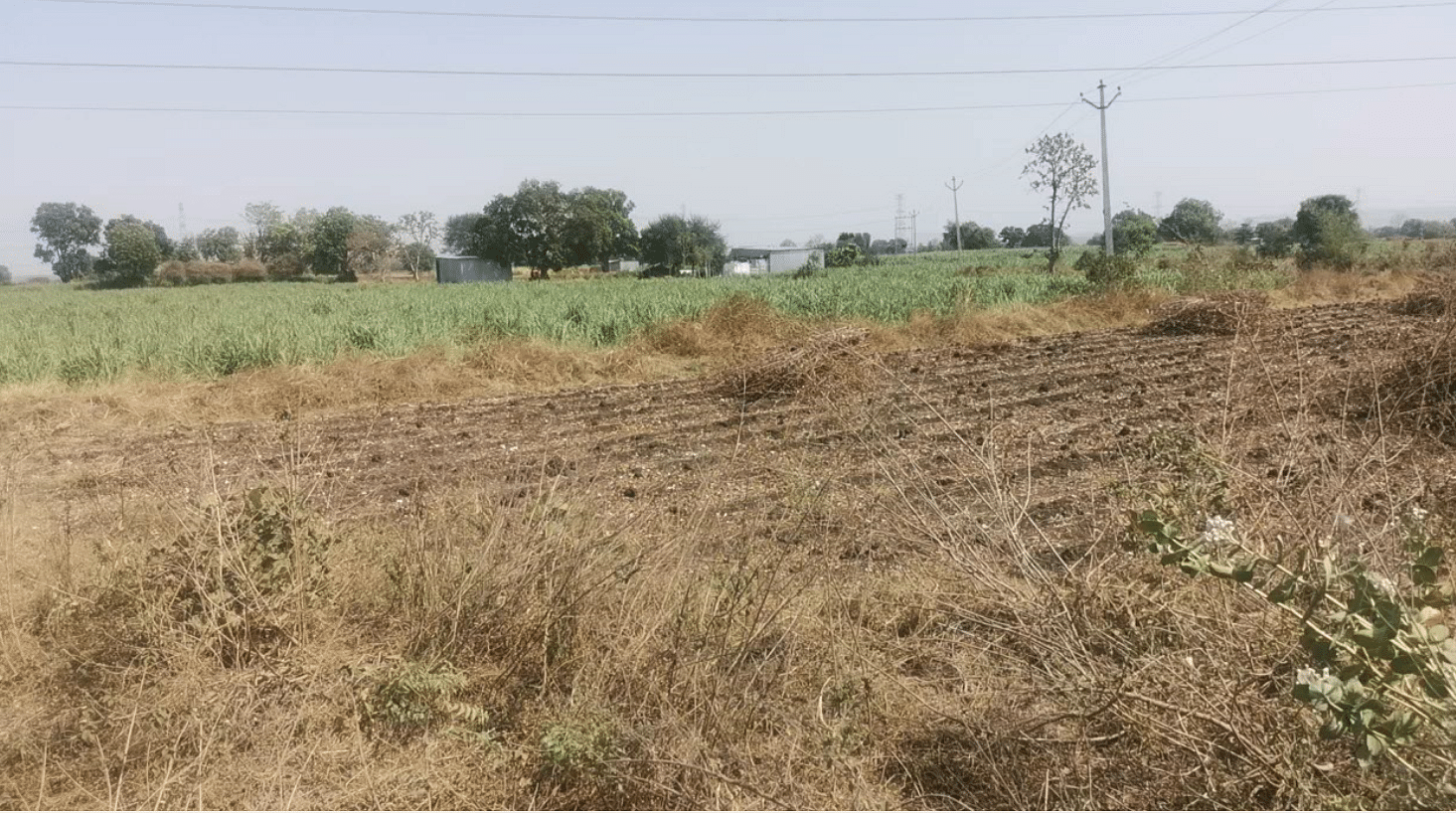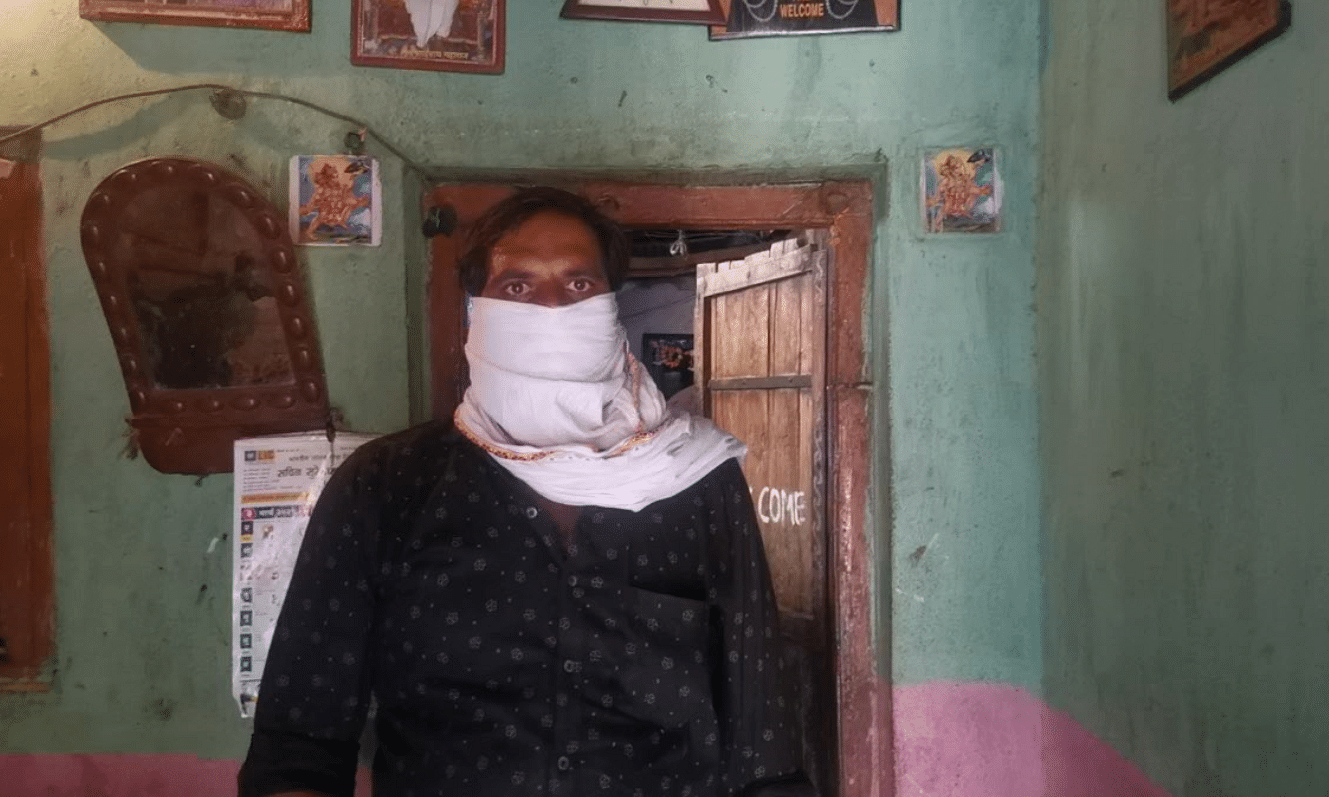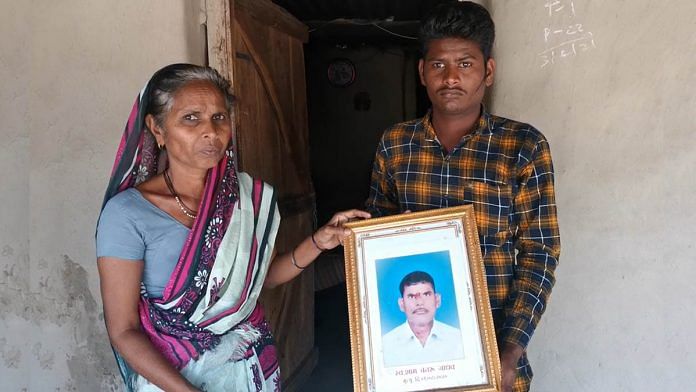Yavatmal: With the Uddhav Thackeray-led Maha Vikas Aghadi (MVA) imposing strict curbs to deal with the rising number of Covid cases, stopping short of a complete lockdown, the farmers of Vidarbha’s distressed Yavatmal district who were badly affected by the first lockdown are living in constant fear of what a second such disruption might do to them.
Last year, the lockdown, the subsequent disruption of supply chains, a crash in prices and access to markets and good quality seeds diminished farmers’ incomes across the region. The situation was further worsened by untimely rainfall and a pink bollworm attack.
“If the mandi closes [now] we will have to face a lot of loss, for the mandi we have to go to Ralegaon or Hinganghat, that’s 50 km away. If the transport stops, we can’t do anything,” said Ravi Choudhary, the sarpanch of Pimplapur village.
He added, “Last year, people could only get 10 per cent of what they usually produce, they had a loss of 90 per cent … Because of this people’s financial condition depleted.”
Although the state government has specified that all activities related to agriculture will be excluded from the lockdown, farmers are still wary of how a second lockdown-like situation might hit their earnings.

With 47,288 new cases and 155 new deaths Tuesday, the second wave of the Covid-19 pandemic continued to ravage the state of Maharashtra. On Sunday, the government announced a weekend curfew and strict restrictions for offices and public establishments. It also shut parks and playgrounds.
In February, Yavatmal had emerged as a major hotspot, recording a positivity rate of 41 per cent. Covid cases have since reduced with the district reporting 277 cases Monday.
Also read: 35 years ago on this day, first farmer family suicide was recorded in Maharashtra
Low prices, poor crop yield sore points
Manish Bhau Jadhav, the district president of the Shetkari Sanghatana, a Maharashtra-based farmer’s union, says there’s a lot of frustration among the farmers.
“From March last year till now, Covid has impacted the farmers severely. They’ve had to dump their produce on the roads, which has led to losses,” he said, and added that not getting the right price in the market has further deepened frustration.
Savita Jadhav from the Amni Khurd village told ThePrint, “We just had about three quintals of cotton this year. We sold our crops but couldn’t get a good price … We could only sell it for Rs 4,000 for quintal. Last year it was Rs 5,000.” Jadhav’s husband committed suicide last year.
According to the Yavatmal zonal manager of the Maharashtra State Cotton Growers’ Marketing Federation (MSCGMF), Chakradhar Goswami, only 60 per cent of the usual 55 lakh quintal of cotton had been produced in the district.
“Because of increased rainfall, the cotton was damaged … Also, people [usually] go around many shops to get good seeds, [but] that wasn’t an option during the lockdown,” he said.
In Maharashtra, cotton sowing takes place in June, with harvest occurring between October and December. Following this, it is procured through the minimum support price (MSP; the minimum price guaranteed by the government) mechanism at the agricultural produce market committee (APMC) yards, a process that stretches up to March.
Anup Chauhan, sarpanch of the Bothbodhan village — among the places to report the highest number of suicides in the district, said, “People with 5-acre farm can get Rs 50,000 to Rs 1 lakh, but this year, some couldn’t get Rs 5,000.” According to him, farmers are also facing hurdles in availing crop loans this year.
In the last six weeks, prices of cotton have risen above the MSP but farmers say that they have little to gain as they had already sold their produce when they could. The looming threat of another lockdown makes matters worse.

Vidarbha-based farm activist Vijay Jawandhiya said the recent local lockdowns in cities such as Nagpur and Amravati have already started pinching farmers.
“Because of the lockdown, there’s quite some impact … all the hotels are being closed now, so demand has decreased for onion, potatoes … there’s no doubt that farmers are afraid of what will happen if there’s a lockdown,” he said.
Bhavana Gawali, Shiv Sena MP from Yavatmal-Washim, said the government is “trying to do as much as they can” to help farmers.
“For instance, there were cases in which the police had stopped trucks ferrying watermelons and I myself contacted the department and the SP after which it was allowed.”
She added, “The question is how much the government can give … the state government’s GST share is stuck with the Centre, so the money we have, will the government spend on health or on other matters? There should be a balance … If the GST money comes, we will have more to give.”
Also read: Rural India can’t be dustbin of history. Three farm laws have shown farmers need a New Deal
Yavatmal no stranger to agrarian distress
For years now, Maharashtra has been topping the list of states with the highest number of farmer suicides. According to the National Crime Records Bureau (NCRB) data on Accidental Deaths and Suicides, the state had reported a total of 3,927 deaths in the farm sector, including farmers and labourers in 2019.
The water-starved Yavatmal district has always been one of the worst affected.

According to the Yavatmal administration’s data, 319 farmers committed suicide in 2020. In 2019, the number was 288. In 2018 and 2017, it was 255 and 242, respectively.
Archana Gawande from the Uti village of the Yavatmal district said her 45-year-old husband, Santosh, was already under a heavy debt of Rs 4-5 lakh and the troubles because of the lockdown were the last straw.
“We weren’t able to sell anything this year, the mandis were closed. We would work as labourers from which we got Rs 200 daily. There was a lot of pressure on my husband…”
Yavatmal’s Resident Deputy Collector Lalitkumar Warhade said the district administration has introduced several schemes to help farmers with debt.
“We have linked agricultural schemes to the farmer suicides and we’re also running a scheme called Mission Ubhari (a scheme to prevent farmer suicides). We are running employment guarantee schemes,” he said.
Also read: Farmers’ protests are the birth pangs of a more urbanised India



